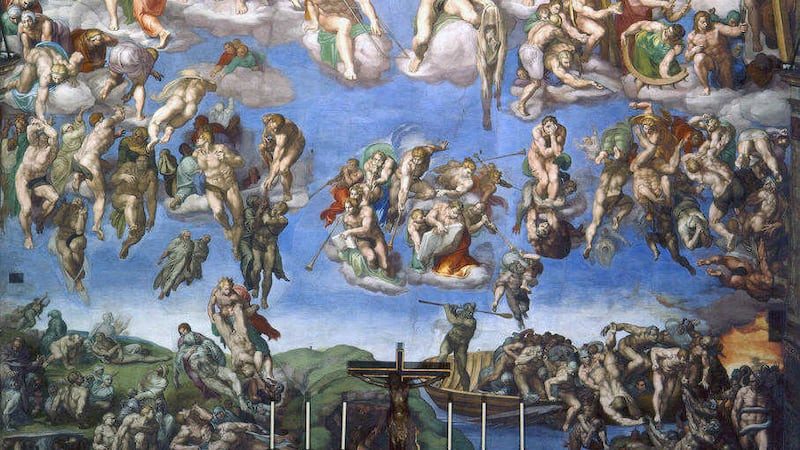THE sixth chapter of St John's Gospel is famous for its teaching on the Eucharist. Apart from its liturgical interest, however, it also raises questions about the meaning of eternal life, which participation in the Eucharist is said to promise.
One obvious question suggested by the passage is what 'eternal life' really refers to or means. Perhaps a less obvious, but no less legitimate, question evoked by the passage, is: 'Is eternal life worth having?'
There is a short story by the Argentinian writer Borges about immortality that casts a troubling light on the whole notion of eternity or immortality.
In the story the main protagonist, a Roman tribune in the army of Diocletian, sets out in search of a legendary city whose inhabitants were reputed to have received the gift of immortality from drinking from the waters of a nearby river.
He finally reached the city, but was surprised to find there only people who seemed utterly listless. They appeared to have discovered that in a world where nothing ended, nothing mattered either.
Rather, everything, all manner of thing, whether 'good' or 'bad', was of equal reality and hence ultimately of no importance.
This story can perhaps alert us to the fact that whatever the Gospel of St John means by 'eternal life', it must surely be something different from, or other than, an everlasting experience of quasi-inaction and boredom and insignificance, like an interminable Sunday afternoon. For that would be more like hell than heaven.
Just because probably most human beings naturally resist the idea of death or find it unattractive, to put it mildly, it is easy to assume that happiness consists in overcoming death and living eternally.
But immortality or eternity as such, if wished for unthinkingly, could turn out to be a poisoned chalice.
The story just mentioned can remind us that what Christianity is really concerned about is not eternity as such but rather the nature of that eternity, if I can put it like that.
Indeed the doctrine of heaven and hell teaches us the same truth, because hell too is said to be immortal, everlasting, eternal, but it's an unattractive prospect for most people.
What Christian faith teaches, then, is that we are promised not so much eternity or immortality, but rather a share in the very life of God, who of course is immortal and eternal.
But it's the reality of the living God that is of primary interest to Christianity, not simply the promise of being immortal.
St John's Gospel underlines this teaching, in the way it links immortality with the believer's union with Christ. For it is only to the extent that people can have the life of Christ within them - a life traditionally identified with the life of charity or love - that it will be worthwhile being eternal or immortal.
To try to put this in a nutshell, we could say that what human beings are really looking for, at least as far as St John's Gospel is concerned, what they most want and need is not in fact immortality, but love.
And since real love is, for St John, divine - "God is love," as he puts it in 1 John 4:8 - it is already eternal or immortal.
If believers have this love within them, then death no longer matters, because they have something that even death cannot destroy.
That is perhaps why in his Gospel, St John doesn't see natural death as being too important, a point highlighted by Jesus' raising of Lazarus from the dead.
What is important for St John is that true, desirable eternal life - the divine life that was incarnate in Christ - should begin within human beings, in their lives on this earth, in the here and now.
And the Church has always taught that it is only if this can happen, only if the divine life of charity can be experienced on earth, that the human desire for eternal life or immortality will really make sense to and for people.
:: Martin Henry is a former lecturer in theology at St Patrick's College, Maynooth and is a priest of the diocese of Down and Connor.








